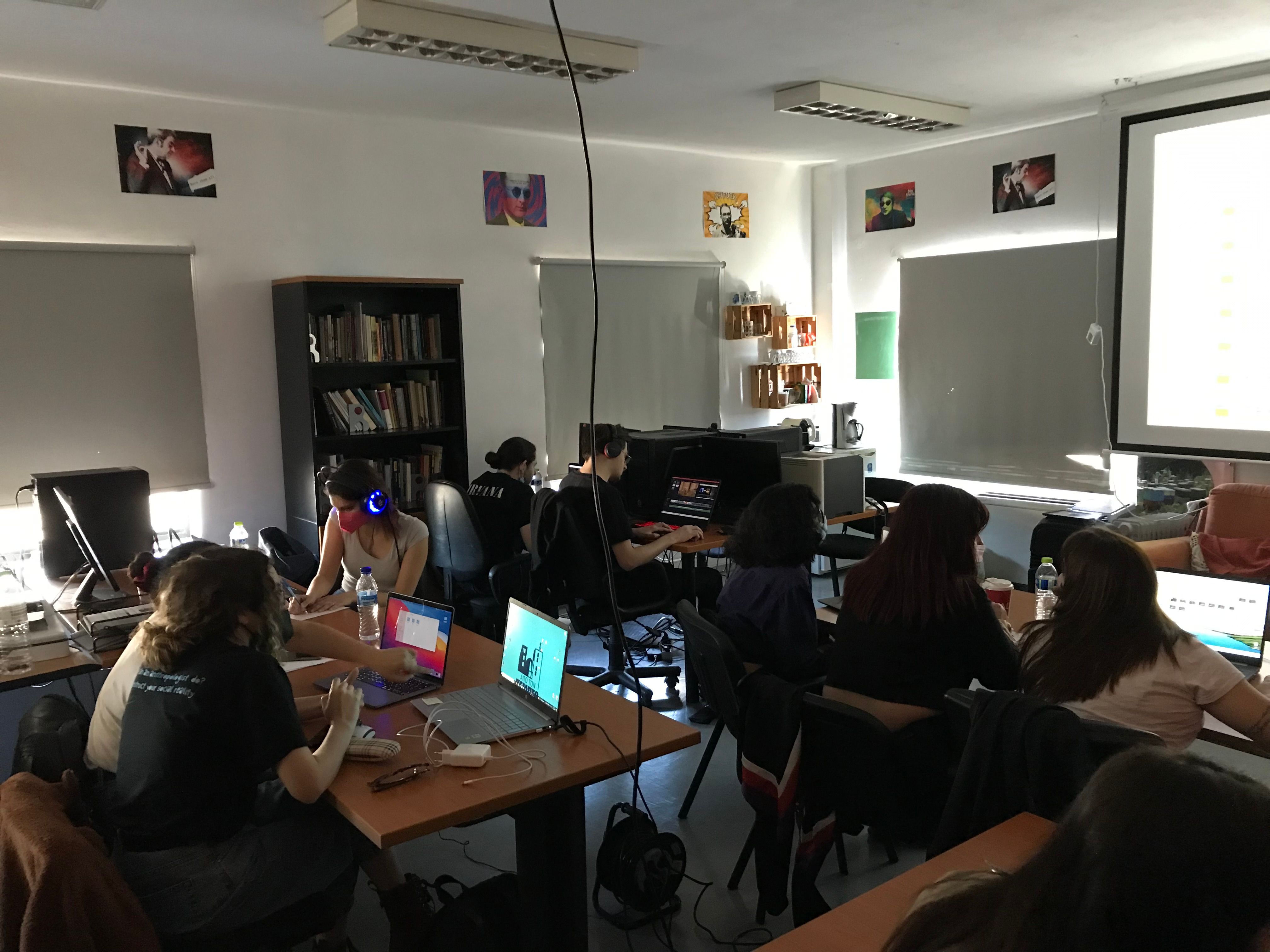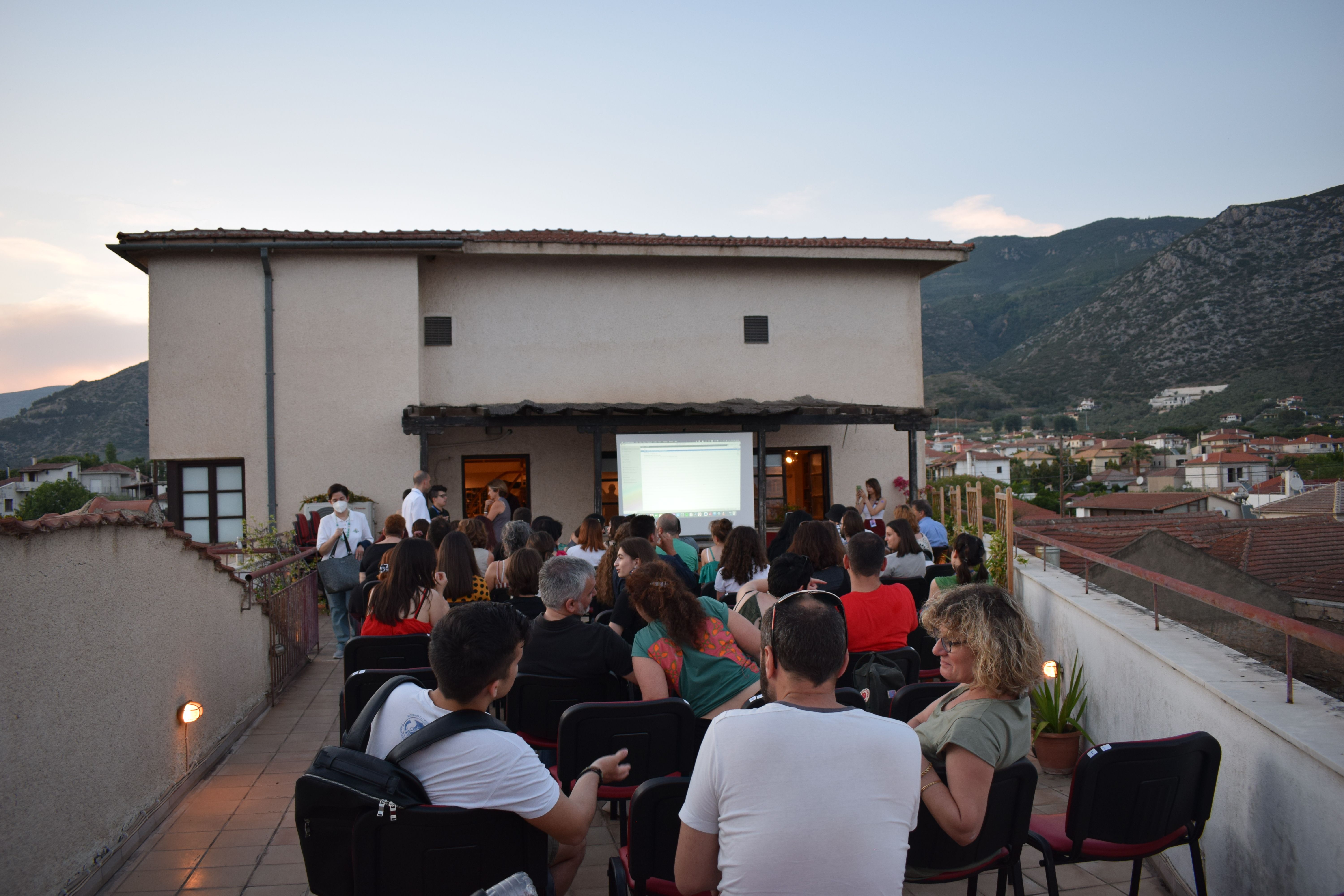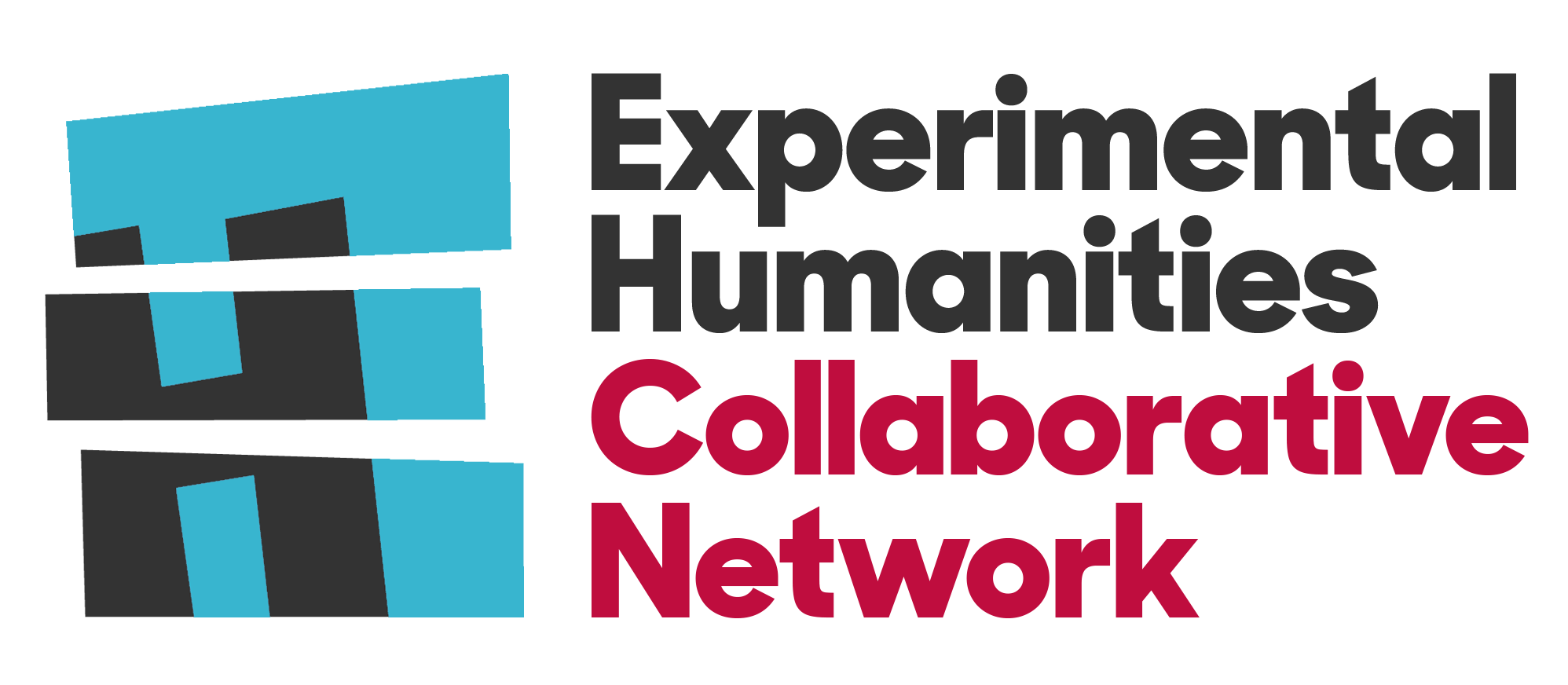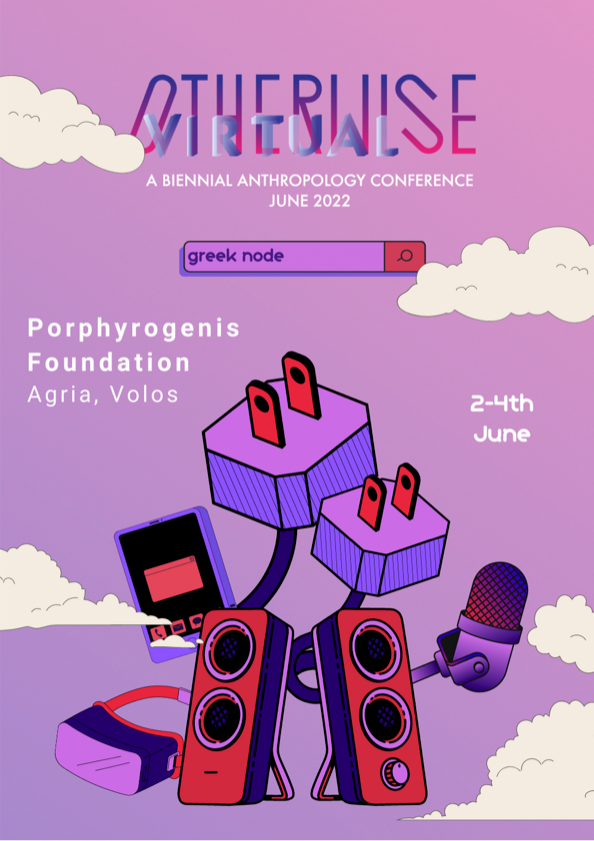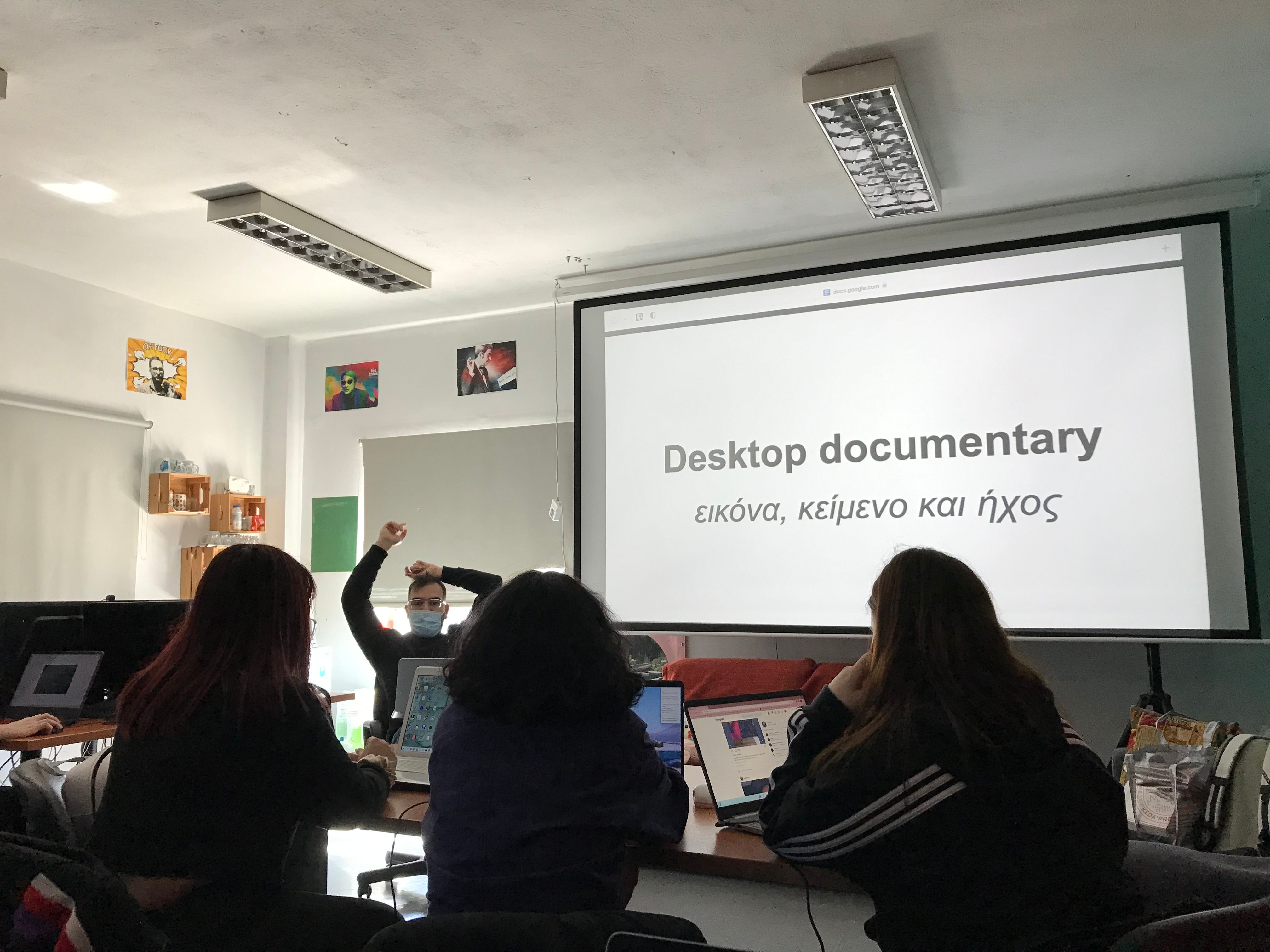Welcome to The Experimental Humanities Collaborative Network
Desktop Cinema
The student desktop cinema productions revolve around the ambiguous and immensely physical relation of our personal names to notions of gender, national and local identity and the daily experiences of bullying that arise. They were created by the students of the undergraduate seminar Digital Narratives and Multimodal Anthropology (instructor: P. Papailias)
But…Where are you really from? (Fotini Kitou, Nino Mtcedlidze, Olga Parthenidou-Fotou, Dimitra Tziska, 9:00)
Summary: How do the politics of names connect to the politics of nationalism and gender discrimination? The stories of four women reveal how personal names may conceal the objective of perpetuating a feeling of (national) “belonging” as well as how gender stereotypes lead to small doses of violence in everyday life.
ΘΕρως (Th-eros) (Theologia Feggarou, Erika Tsioukantana, 4:00)
Summary: Two students, five names, a desktop cinema. How many different stories can hide behind our names? How can they confine you to a stereotype that does not represent you? Am I feminine, christian, monarchist/royalist? Do I feel like I am a part of my place of origin? Am I all of that, none of it or some of it? Two parallel stories of reclaiming and redefining ourselves around the theme of our names and through an alternative narration, that of our personal computer.
Second Life - Second Name (IIlias-Marios Haliamalias, Voula Bouliou, Michalis Panagiotopoulos, 05:41)
Summary: How do our assigned birth names guide us towards gender performativity? Three friends are confronted with second thoughts in their attempt to create nicknames and the personal characteristics of their online personas in digital online world in order to to meet the needs of their personal identity. An attempt to showcase the complexity of name giving, fabrication and representation of themselves. At the same time, creating and having different nickname-names discloses the will to create a specific identity to different platforms.
In the 3 desktop cinema productions students addressed issues of digital affect and how they themselves are being constituted as digital subjectivities. The affordances and techniques of the desktop genre are particularly conducive for communicating the aforementioned issues because screencapture/desktop video 1) as a born digital format highlights and problematizes the digitalization of everyday life, 2) as a “low” form (small screens, extensive use of found footage, connection to social media) is an ideal format to critique the structures of authorship and authenticity related to academic discourses, but also to address broader publics “where they are” and 3) has great potential as a reflexive mode of storytelling for ethnographic research.
The issues tackled in the videos concern kinship and patriarchal formations of kinship in the Greek context, as well as the performativity, naturalization and normalization of gendered and racial/ ethnic connotations of their names through local cultural, traditional and religious conventions. The processes and the personal experiences of “name-reclaim” and reappropriation, but also of the name subversion, are basic patterns in almost all of the student texts, which form the basis for the multimodal works.
Organized by Penelope Papailias, University of Thessaly
Assistant: Constantinos Diamantis
Tech support: Ilias Marios Haliamallias
